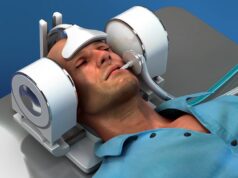Treatment with creatine monohydrate for at least five years for patients with early and treated Parkinson’s disease failed to slow clinical progression of the disease, compared with placebo, according to a study in JAMA.
Parkinson’s disease is a progressive neurodegenerative disorder that affects approximately six million people worldwide. Incidence is expected to increase over the next decade, but neither a cure nor a treatment is available that has been proven to slow progression. Evidence indicates that creatine, an amino acid, plays an important role in cellular energy production, which may be impaired in Parkinson’s disease. Oral creatine supplementation in mice has suggested a neuroprotective effect, according to information in the study.
Karl Kieburtz, of the University of Rochester, Rochester, USA, and colleagues, randomly assigned 1,741 men and women with early (within five years of diagnosis) and treated (receiving dopaminergic therapy) Parkinson’s disease to receive placebo or creatine monohydrate (10g/d) for a minimum of five years (maximum follow-up of eight years). Participants were recruited from 45 investigative sites in the USA and Canada, enrolled from March 2007 to May 2010, and followed up until September 2013.
The trial was terminated early for futility based on results of a planned interim analysis of participants enrolled at least five years prior to the date of the analysis (n=955).The median follow-up time was four years. Using several measures of Parkinson’s disease progression, the researchers found that treatment with creatine, compared with placebo, did not improve clinical outcomes.
There were no detectable differences in adverse and serious adverse events by body system.
“These findings do not support the use of creatine monohydrate in patients with Parkinson disease,” the authors conclude.










